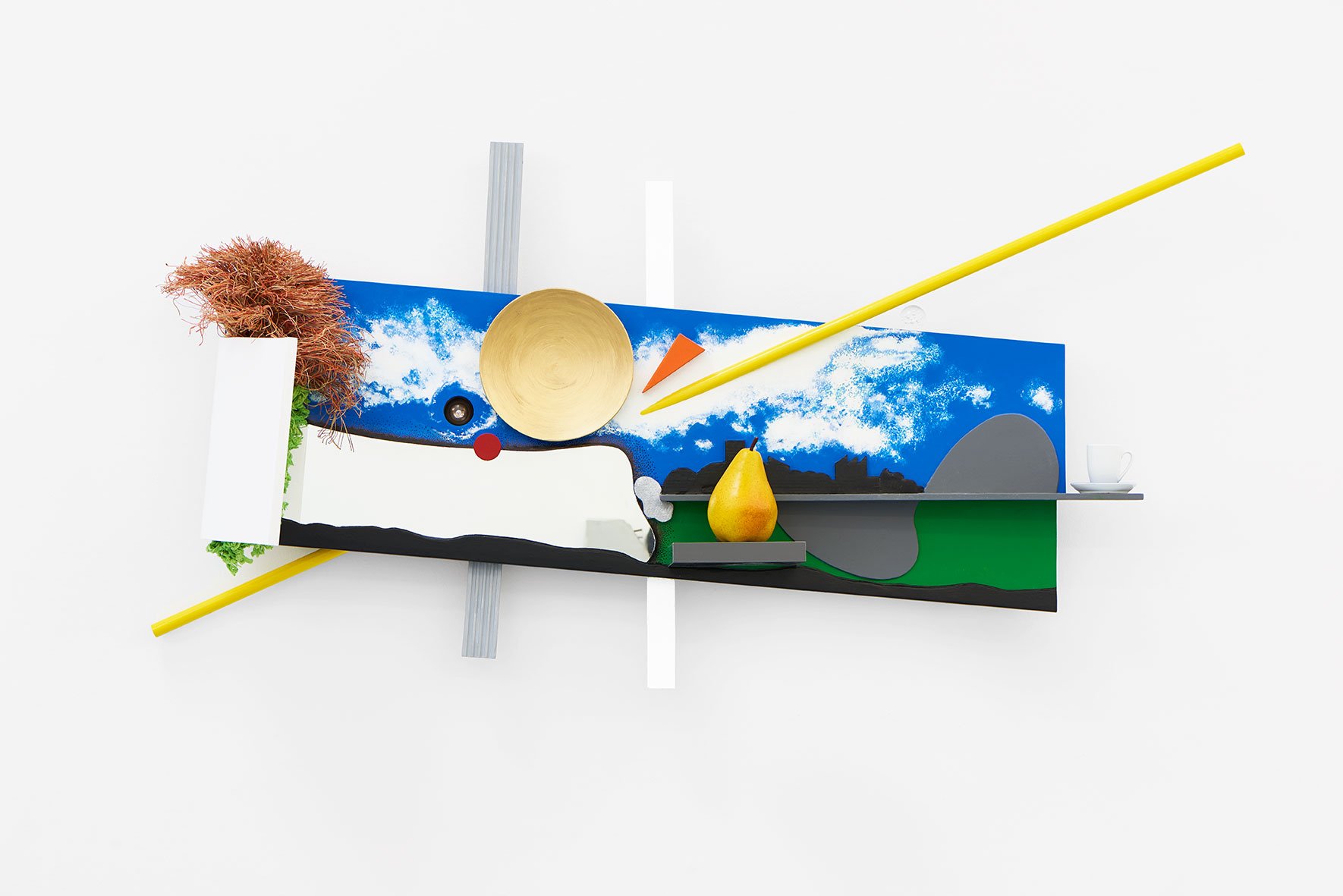Exhibition Talk: Wim T. Schippers in conversation with Margriet Schavemaker
October 19, 2016, 5 – 6 PM

Wim T. Schippers, installation view, 2016, Bonner Kunstverein, Courtesy of the artist. Photo: Mareike Tocha
Wim T. Schippert in Conversation with Margriet Schavemaker, Stedelijk Museum and Michelle Cotton, Director (English Language).
Bonner Kunstverein warmly invites you to attend a talk by Wim T. Schippers and Margriet Schavemaker programmed in conjunction with our current exhibition, Wim T. Schippers: A Retrospective which is on view until 13 November.
Wim T. Schippers (b. 1942, Groningen) studied graphic design at Instituut voor Kunstnijverheidsonderwijs, Amsterdam from 1959 to 1961 alongside Bas Jan Ader and Ger van Elk. His work was presented in significant surveys of European Pop Art including ‘Nieuwe Realisten’ at Haags Gemeentemuseum in The Hague, ‘Neue Realisten und Pop Art’ at the Akademie der Künste in Berlin (both 1964) and ‘Pop art, Nouveau Réalisme, Etc…’ at the Paleis voor Schone Kunsten, Brussels (1965). Solo exhibitions of his work include the seminal ‘A-dynamische Werken’ (with Ger van Elk, 1962) at the Museum Fodor, Amsterdam and exhibitions at the Stedelijk Museum (with Jeroen Henneman, 1970; 1978 and 1994). His work was exhibited in Bonn in 1990 as part of the exhibition ‘Schräg / Tegendraads. Parodie, humor en spot in hedendaagse Nederlandse kunst’, at the Rheinisches Landesmuseum. In 1997 he was the subject of a large retrospective organised by the Centraal Museum, Utrecht.
Margriet Schavemaker
Margriet Schavemaker is currently working as a curator and head of education, interpretation and publications at the Stedelijk Museum in Amsterdam. Recent exhibitions curated by Schavemaker are 'The Stedelijk Museum and the Second World War' (2016), 'ZERO: Let Us Us Explore the Stars' (2016) and the upcoming retrospective 'Jean Tinguely: Machine Spectacle' (2017). Schavemaker writes about contemporary art and theory and organizes discursive events (such as the acclaimed lecture series ‘Right about Now: Art and Theory since the 1990s’ (2006-2007), ‘Now is the Time: Art and Theory in the 21st Century’ (2008-2009) and 'Facing Forward. Art and Theory from a Future Perspective' (2011-2102).
About the exhibition:
Well known variously as an artist, actor, composer, director and writer Wim T. Schippers’ career spans over 50 years of exhibitions, theatre, television, radio productions and music publishing. Associated initially with both Pop Art and Fluxus, he made his first exhibitions in Amsterdam in the early 1960s before turning to broadcasting in 1967. Together with Trino Flothuis, Wim van der Linden and Hans Verhagen he produced the cult television show, ‘Hoepla’ (‘Whoops’, 1967). The programme created a national controversy with the first instance of nudity on Dutch television. In the 1970s he co-wrote and directed several absurdist comedy programmes for the Dutch broadcaster VPRO such as ‘De Fred Haché Show’ (1971), ‘Barend is weer bezig’ (‘Barend is at it again’, 1972-73);‘Van Oekel’s Discohoek’ (1974-75) and ‘Het is weer zo laat!’ (‘It’s that time again’, 1974). Between 1984 and 1991 he produced and directed 328 episodes of ‘Ronflonflon’ or ‘Ronflonflon avec Jacques Plafond (‘Ronflonflon with Jacques Plafond’), which became VPRO’s most popular radio programme. He has written and directed over 40 plays for theatre and including, famously, a 46 minute play performed by a cast of six Alsatians entitled ‘Going to the Dogs’. Since 1976 he has also provided the Dutch language voice of Ernie, Kermit the Frog, Guy Smiley and Count Von Count on ‘Sesamstraat’ (‘Sesame Street’).
The exhibition at Bonner Kunstverein surveys his diverse cultural output with a focus on his work as an artist, presenting significant examples of his sculpture, drawing, film and work for theatre and television. The selection includes the seminal, large-scale sculpture ‘Pindakaasvloer’ (‘Peanut Butter Floor’, 1969) and ‘Indian Summer Christmas Tree’ – exhibited for the first time since its original presentation on Leidseplein in Amsterdam in September, 1969. The exhibition places emphasis on the works documented within the television programme ‘Signalement, kunst na 1960’ (‘Signalement, art after 1960’, compiled with Willem de Ridder in 1963). This programme aligned Schippers’ work with both Fluxus and Pop Art and was the first time he made use of television as a medium.
It is Wim T. Schippers’ first solo exhibition outside the Netherlands the first retrospective exhibition of his work in 19 years.
The exhibition includes loans from public and private collections across the Netherlands including the Museum Boijmans Van Beuningen, Rotterdam and Stedelijk Museum Amsterdam. It is generously supported by the Mondriaan Fund and the Embassy of the Kingdom of the Netherlands.